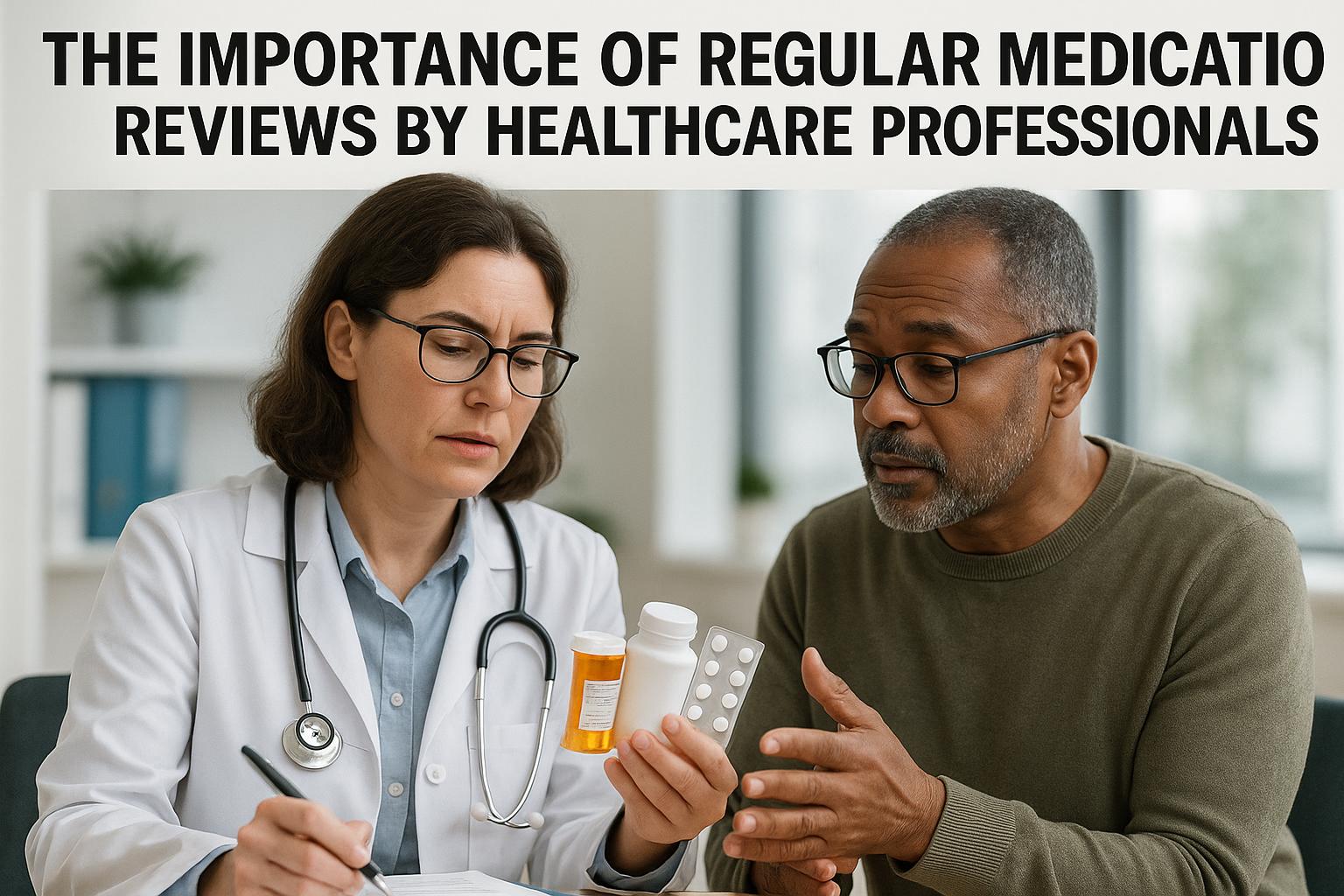
The importance of regular medication reviews by healthcare professionals.
The Role of Regular Medication Reviews
Regular medication reviews are pivotal in the landscape of modern healthcare. These reviews involve the systematic evaluation of a patient’s medication regimen to ensure it aligns with the optimal therapeutic goals and the patient’s health status. Conducted by healthcare professionals such as pharmacists, doctors, or nurse practitioners, these reviews are integral to maintaining and improving patient health.
Enhancing Patient Safety
The cornerstone of any medication review is its capacity to enhance patient safety. Periodic assessments of a patient’s medications allow healthcare professionals to identify potentially harmful drug interactions and adverse effects. Such evaluations are especially crucial for patients who are on complex medication regimens, involving multiple drugs that may interact with each other in unexpected ways. Additionally, these reviews offer a chance to scrutinize the necessity of each medication in the regimen. Some medications might be outdated, redundant, or no longer necessary. Eliminating unnecessary medications not only reduces the risk of overmedication but also helps in minimizing the associated complications, paving the way for a safer treatment pathway for patients.
Improving Medication Adherence
A significant benefit arising from regular medication reviews is the enhancement of medication adherence. When healthcare professionals engage in medication reviews, they acquire opportunities to address any patient concerns or difficulties related to managing their prescribed drugs. This is essential as patients may encounter various challenges, such as misunderstandings about the regimen, forgetfulness, or side effects, that hinder compliance. Through these reviews, healthcare providers can educate patients on their treatment plans. This education is vital for ensuring that patients comprehend the importance of following their prescribed regimen accurately, thus fostering adherence. Additionally, effective communication during reviews can build trust, which can further motivate patients to manage their medications responsibly.
Optimizing Therapeutic Outcomes
Optimizing therapeutic outcomes is another key objective of regular medication reviews. Health conditions can evolve over time, and the medications initially prescribed may not remain the most suitable choice throughout the treatment course. Regular reviews provide healthcare professionals with an opportunity to tailor treatment plans to a patient’s current health needs and situations. By assessing the appropriateness of each medication, adjustments in dosage or therapy can be made when necessary. This proactive approach ensures that patients receive the most effective and appropriate treatments at any given time, thereby enhancing their overall health outcomes and quality of life.
Cost-Effectiveness
Beyond enhancing safety and optimizing outcomes, regular medication reviews also contribute significantly to the cost-effectiveness of healthcare. The healthcare system faces enormous pressures in managing costs, and medication expenses constitute a substantial part of these costs. By conducting regular medication reviews, healthcare providers can identify unnecessary or ineffective medications, reducing the financial burden on both healthcare systems and patients. Furthermore, by exploring more affordable medication options without compromising on quality or efficacy, professionals can help lower expenses while ensuring patients receive the care they need. Cost-effectiveness is not only beneficial for individual patients but also for the healthcare system as a whole, promoting sustainable medical practices.
Regular medication reviews established by healthcare professionals form a critical element of comprehensive patient care. These reviews enhance safety by preventing adverse drug interactions and unnecessary overmedication. They support adherence by addressing patient concerns and educating them about their medication regimens. Additionally, they optimize therapeutic outcomes by tailoring treatments to the evolving needs of patients. Importantly, they are also a pathway toward achieving cost-effectiveness in healthcare by eliminating redundant medications and seeking more affordable options. Healthcare providers interested in implementing or refining their medication review processes can find valuable resources and guidelines on the NHS website. Active participation from patients in these reviews can significantly improve health outcomes and promote their overall well-being, making medication reviews a cornerstone of modern therapeutic practices.
